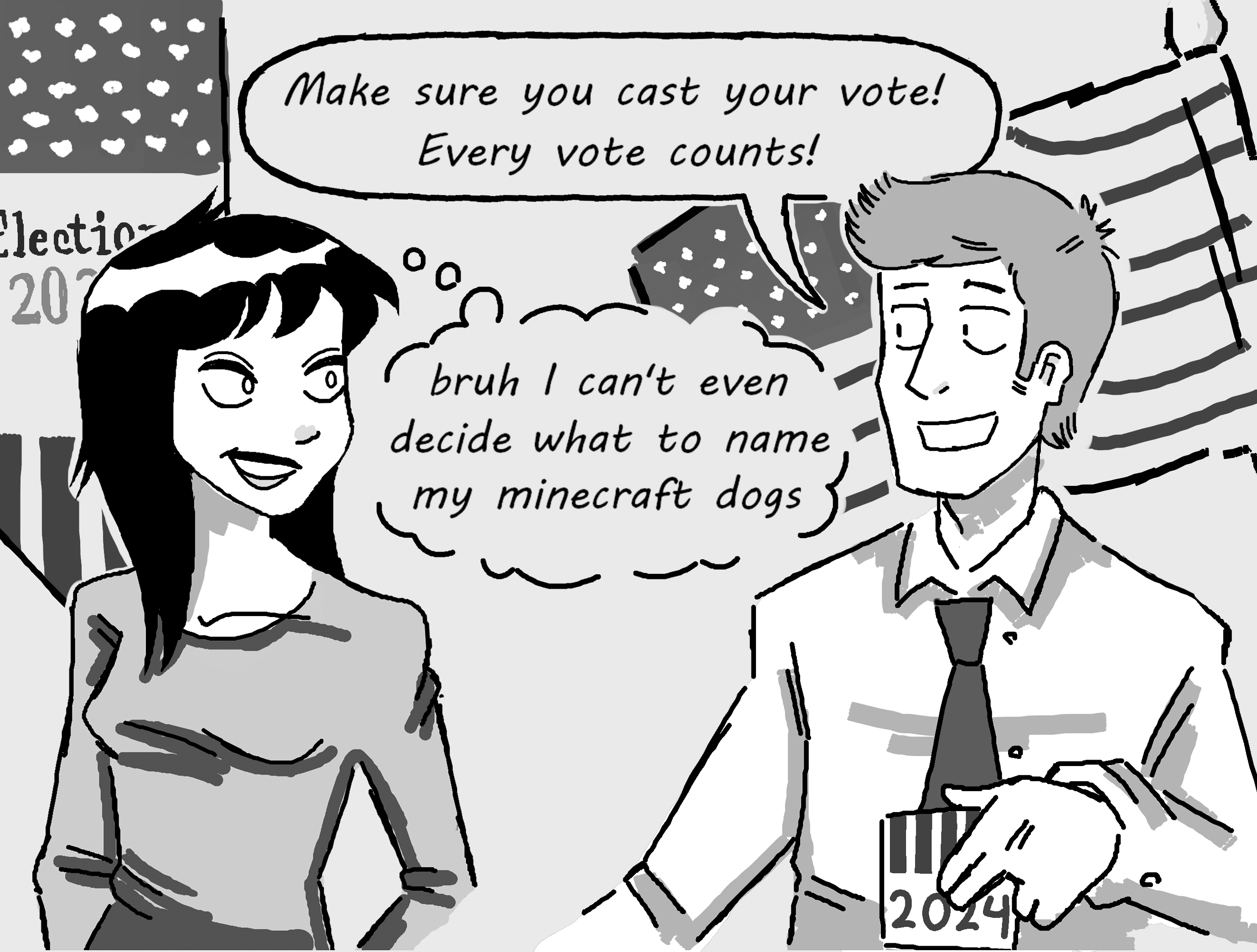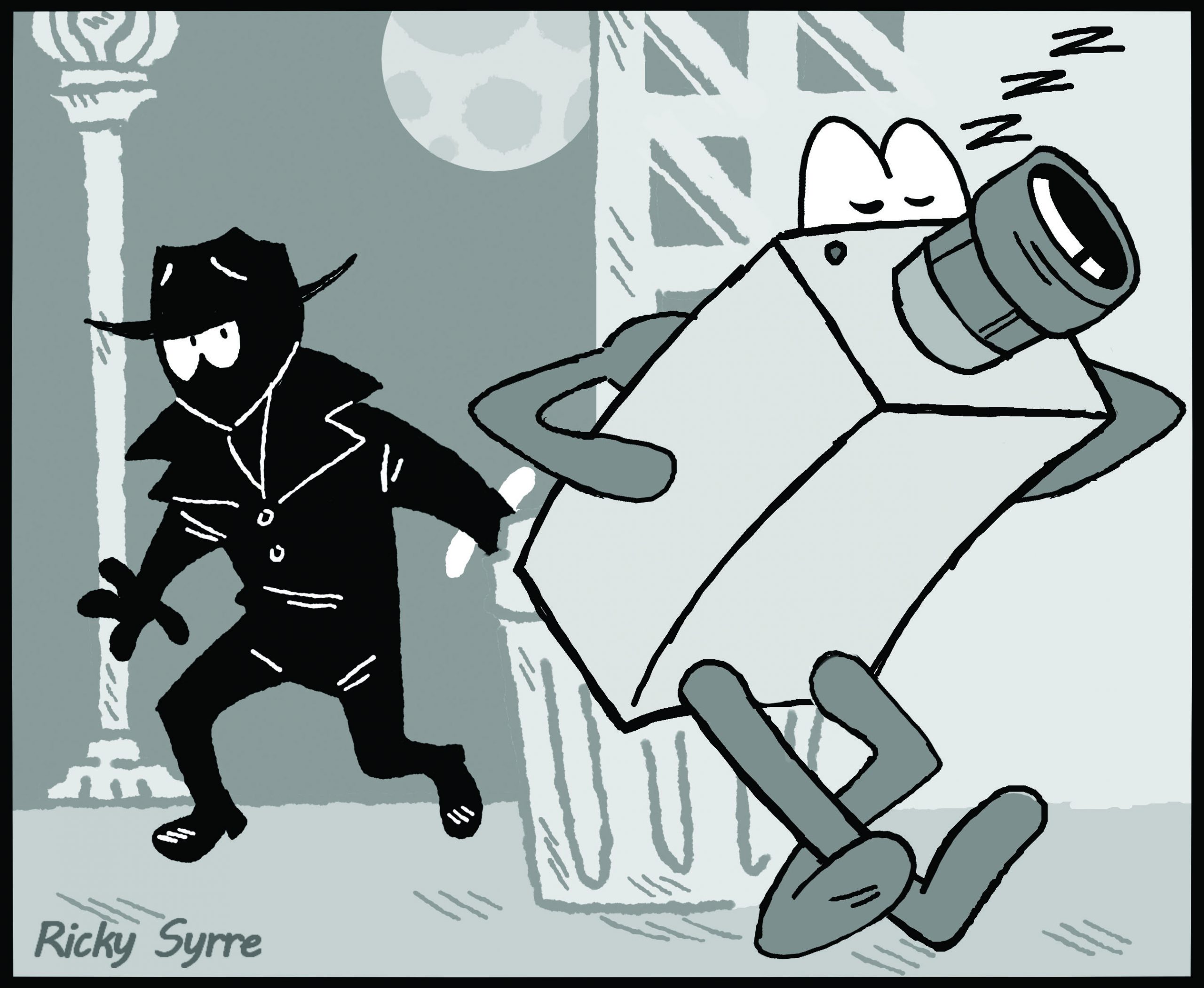
Heather McFarland/ Staff Writer
OPINION
On the first day of semester, I sat in Dr. Paul Gottemoller’s government class listening to his explanation of the syllabus. Thirty minutes into the details, a student walked into the room and sat down. After another ten minutes Gottemoller asked, “Are there any questions?”
The tardy student raised his hand and said, “I was late can you go over what I missed?”
Gottemoller looked at him and said, “Not my problem.”
The student became visibly red. Gottemoller said, “That sounded rude, but I’m not going to repeat things because you came in late. Find out from a fellow student.” The young man nodded.
After class another student commented, “He should have given him a break; The kid is still in high school. He’s only 17 years old.” Gottemoller replied, “Well, I don’t teach high school students.”
I recount this story as an example of what some of us may have dealt with as a result of the new programs that have been implemented in recent years, such as Dual Credit Classes and Collegiate High School. Dual Credit, allows a high school junior or senior to take college courses and receive credit for the course from both the college and the high school. The Collegiate High School, which was implemented in 2006, enrolls approximately 400 students, grades nine through twelve, who also have the opportunity to complete college classes and graduate with both their diploma and associates degree. Both of these programs ensure that there is a considerable share of fifteen to seventeen year olds on the East Campus— dubbed the “Young Campus”—for this exact reason.
Within months of my first year of classes on the East, I became increasingly frustrated at the maturity level—or lack thereof—from classrooms with a high population of high school students. I had graduated high school twelve years earlier, and I felt like I was paying tuition money to go through again.
After finishing my basics, I went over to the West Campus for classes specific to my major and was amazed at how different the dynamics were due to the absence of high school students at that location. I enjoyed the feel of the older students on the West until I had to return to the “Young Campus” to complete my final classes. I immediately noticed the change in aspects, and I encountered prime examples of the effect that these youthful students have on the atmosphere at Del Mar College East.
I’d like to point out that the issue I have isn’t entirely with the young minded nature of some of these students, because let’s face it, there are classmates of ours that are twice the age of these kids and who act just as immature, if not more so. Furthermore, I’d like to repeat that my frustration isn’t toward all of these students, as I have had several classes with Collegiate and Dual Credit students alike who were a pleasure to learn beside.
My resentment is towards those who feel we need to excuse the behaviors of some of these students simply because they are so young. Such as the young lady in my Government class who declared, “Give him a break!” To which I say, “Why?”
College is an institution of higher learning designed to challenge minds and mold them into critical thinkers. It is supposed to prepare people for what this harsh world will dish out. If we keep making concessions for these young students based on their age, what is that teaching them?
I’d like to challenge these students to really consider whether they are emotionally ready to undergo the college experience and let that be their guide. The Collegiate High School and the Dual Credit criteria both make reference to the student being able to demonstrate college readiness. I refuse to believe that this “readiness” is referring solely to intellect.
If your mindset hasn’t grown, nor your maturity level advanced then will you have really accomplished anything during your time here? It is important that these students rise to meet the college level, instead of lowering it to that of high school.
If you want the high school experience, then don’t partake of these advanced programs, for as Gottemoller effectively pointed out, the instructors here do not teach high school and the rest of us have already gone through it.




